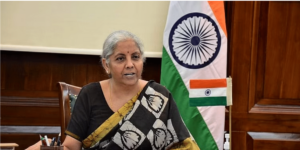Open Network for Digital Commerce (ONDC) aims to go beyond domestic commerce and facilitate global trade, enabling cross-border transactions and helping Indian businesses tap into international markets, Managing Director Thampy Koshy said at the Global Fintech Fest.
“ONDC’s vision for cross-border trade is deeply rooted in our commitment to democratise digital commerce,” Koshy explained. He emphasised that ONDC aims to create “a level playing field where small and medium-sized enterprises (SMEs) from across the world can compete on an equal footing.”
By reducing the dominance of large ecommerce players and breaking down barriers to entry, ONDC is focused on ensuring that consumers have access to a diverse range of products and services at competitive prices.
Koshy further highlighted that ONDC’s cross-border vision goes beyond merely expanding the network’s footprint. “It’s about fostering collaboration between nations,” he said.
ONDC seeks to integrate with similar networks and platforms globally to build “a seamless digital commerce ecosystem that transcends borders.” This integration is intended to help businesses, especially SMEs, access new markets and customers, driving economic growth and creating fresh opportunities for trade.
A crucial component of ONDC’s strategy is interoperability. Koshy stressed that by adhering to open standards and protocols, “We ensure that businesses and consumers can easily connect and transact across different platforms and networks,” he said.
This approach will be essential in enabling smooth cross-border transactions, reducing friction, and enhancing the overall user experience.
Additionally, Koshy pointed out the critical role of technology in achieving ONDC’s cross-border goals. “Advanced technologies such as blockchain, AI, and machine learning will be pivotal in ensuring transparency, security, and efficiency in cross-border transactions,” he noted.
These technologies are expected to address challenges like fraud, data privacy, and regulatory compliance, thereby building trust among participants in the global digital commerce ecosystem.










